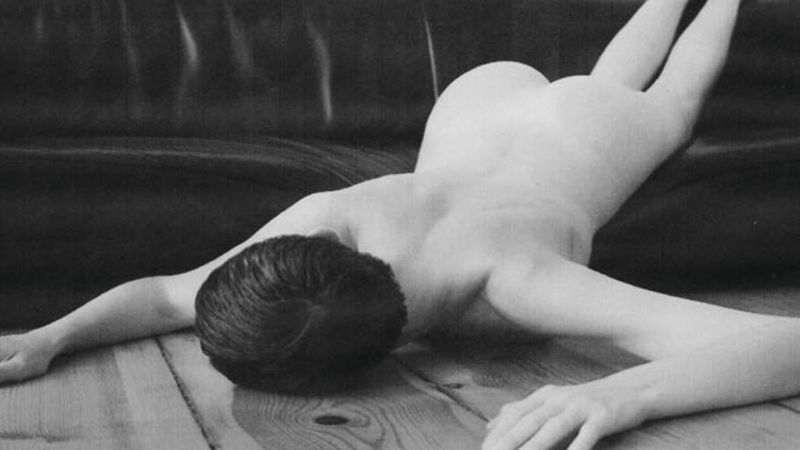




The latest issue of Doesn’t Exist is entirely devoted to the work of Powell and Pressburger, and it features interviews with film historian Ian Christie, journalist and documentarist Mark Cousins and filmmaker Sally Potter. In addition, the magazine includes a recreation Michael Powell’s iconic Peeping Tom (1960) in fashion photoshoot format.
This article contains only the interview highlights. Click here in order to find out more about Doesn’t Exist, and to acquire your luxury hard cover edition right now and read the full interview!
…
.
Victor Fraga – Would there have been a Michael Powell without an Emeric Pressburger, and vice-versa?
Mark Cousins – Each existed without the other, but it was a case of 1+1 = 3. Powell’s extravagant, Blakean visual imagination was ballasted and steered by Pressburger’s European sense of society, psychology and decency.
VF – The filmmakers predate the notion of auteur in film. Are they the earliest British auteurs?
MC – Alfred Hitchcock and producers Alexander Korda and John Grierson are, arguably, the first British auteurs. Powell and Pressburger are the wildest early auteurs of British cinema. They are part of a lineage that includes F. W. Murnau, Federico Fellini and Vera Chytilova.

VF – How would you describe their approach to sexuality? Was there a prevalent beauty stereotype?
MC – In Powell and Pressburger films, you could say that sexuality isn’t just a desire for certain types of people, bodies or types. It’s a multidirectional force, uncorallable and not only confined to one person’s desire for another. Pamela Brown in I Know Where I’m Going! [Michael Powell and Emeric Pressburger, 1945] is clearly to be adored, a Rousseau-ean force of nature, but the film totally understands Roger Livesey Harris tweet beauty too. The film’s sense of sexual desire overspills heterosexual boundaries. More generally, Arthur Koestler’s idea that creativity is about “bisociation” makes sense in the Powell and Pressburger multiverse. Beauty is polyvalent, Anton Walbrook can stop your heart, Deborah Kerr will almost always make you catch your breath. A deep theme in Powell and Pressburger is a sophisticated hatred of prejudice. They just don’t want to exclude other people. This means that they don’t see desire as otherable. All modes of beauty are their modes of beauty. “Nothing human is alien to me”.
VF – What are the rightful heirs and heiresses of Powell and Pressburger in the 21st century?
MC – Lynne Ramsay. Damien Chazelle.
VF – Why do you think Powell and Pressburger’s films continue to have such a powerful impact on the imagination of so many creatives, in cinema, fashion, arts, music, literature, theatre, among others?
MC – Because they are an exciting eruption of unconscious material. Because they aren’t only wildy stylistically daring, they marshal their high style to real questions about war and history. The closest parallel isn’t in European cinema or the anglophone world. The other filmmakers who really used melodrama to open up to the trauma of history were in… India. Powell and Pressburger are like the best of so called [I never seldom use the word] Bollywood directors. Especially Guru Dutt. But that’s another story.
…
.
The image at the top is from ‘Peeping Tom’, and it belongs to the BFI Archive. The two images belongs to Doesn’t Exist.






